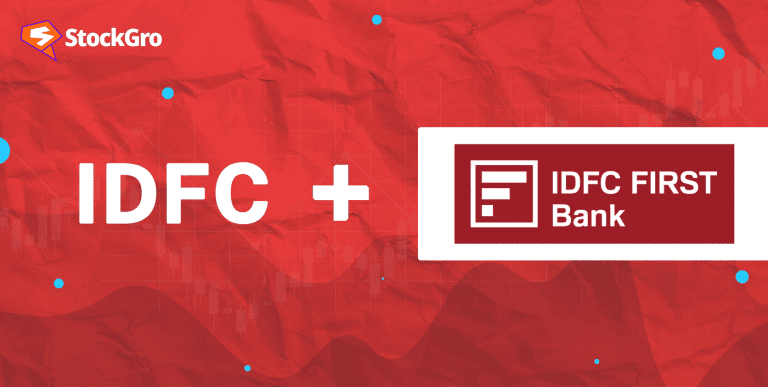
Experienced stock trader and entrepreneur Mukul offers his fantastic career path—one marked by unexpected turns and resiliency—in this insightful conversation.
Mukul was originally on a pretty different route, wanting to be a doctor while growing up in a traditional Marwari family known for its great entrepreneurial roots. However, family influences, and a search for fresh possibilities drove him from medicine to the financial markets, where he discovered his actual calling.
The path Mukul follows is a fantastic illustration of flexibility. From learning for his MBBS to honing the nuances of stock and commodity trading on exchanges like NCDEX (National Commodity and Derivatives Exchange) and MCX (Multi Commodity Exchange), the Marwari community’s natural business acumen and his desire to pursue something different drove his career turnabout. Along with testing his resilience, the difficulties Mukul encountered in switching to stock trading stoked his love of learning the nuances of financial markets.
Through his career change, the challenges he surmounted, and the techniques that enabled him to succeed, Mukul provides priceless insights in this interview. His experiences give readers an honest look into the reality of stock trading and a unique mix of personal reflections and professional advice. Anyone interested in finance, business, or career changes should definitely read Mukul’s inspirational and instructive narrative.
Mukul Agarwal – Early life and challenges
Early in life, Mukul was driven by cultural expectations, family values, and ambition. Driven by the want to change people’s lives, he dreamed of being a doctor, like many other aspirant students. His educational path brought him to MBBS, and he even twice got offers for BDS (Bachelor of Dental Surgery). He turned down the BDS offers to keep working towards his dream, though—that of a surgeon, not a dentist. Though fate had other ideas for Mukul, his love of medicine stayed fierce.
Growing up in a conventional Marwari family, Mukul also had another kind of pressure: the expectation to enter the corporate world. Entrepreneurship is highly prized in many Marwari homes since financial independence and business acumen are handed down through the years.
Not an exception was Mukul’s family. Like many Marwari patriarchs, his father hoped Mukul would either start a new family business or run the existing one. Along with medical career disappointments, this unspoken expectation started to cause Mukul to turn his attention towards business.
Mukul first encountered the commodity markets through the participation of his family in the spice trade, especially in turmeric and chilli peppers. Through NCDEX, where he saw how commodity prices changed and how a logical extension of conventional business could be futures trading, his first contact with finance came. Helping with the family company, Mukul started to grasp the financial markets and progressively turned away from his medical dreams.
Still, this change of direction presented significant difficulties. After devoting so much time and effort to medicine, Mukul struggled emotionally at giving up his dream of being a surgeon. Further strain came from the unknown path from a steady career path like medicine to the erratic world of trading. Still, he discovered a connection between the two disciplines—both needed accuracy, study, and fast decisions—qualities that spoke to him.
Mukul also lacked official financial education; thus, his entry into trading seemed even more difficult. Often training under seasoned brokers in Mumbai, he devoted many hours to learning the technical elements of stock and commodity trading. While the fast-paced trading world was a far cry from the regimented environment of medical school, Mukul’s fortitude and adaptability helped him negotiate these new waters.
Mukul’s early life was ultimately defined by his capacity for flexibility and challenge embracing. Despite early obstacles, his entrepreneurial family background and personal resilience laid the groundwork for his successful stock market entrance.
Must read: Unlocking prosperity: The transformative power of financial literacy
Mukul Agarwal Career path
From his family’s conventional spice company to the exciting field of commodities and stock trading, Mukul’s path in the stock market started off unexpectedly. Originally focused on commodity trading, especially in agricultural markets, including turmeric and chilli peppers, he co-founded a broking company.
Early contact with the NCDEX and MCX gave him priceless first hand trading experience that laid the groundwork for a long and prosperous career in finance.
Understanding that success in the stock market required more than just basic knowledge, Mukul relocated to Mumbai, India, the financial centre, to develop his abilities. Deeply involved in practical instruction with seasoned traders, he acquired the nuances of broking, market analysis, and the vital need of timing in trading decisions.
Especially in volatile industries like turmeric and bullion, this practical experience proved crucial since it gave him insights into market behaviour, price fluctuations, and the fundamental reasons influencing commodity prices.
A turning point in Mukul’s career came when he realised how much market manipulation affects trading results. Early on at NCDEX, he personally saw the erratic character of price movements, mainly under the influence of operators. Along with influencing commodity prices, this volatility severely disrupted traders’ way of life.
Mukul saw the devastation wrought by ill-timed trades, which caused some clients to sell their houses to pay losses. Such events greatly affected his attitude to risk management since they made him cautious and foresighted.
Starting off successful in commodity trading, Mukul progressively broadened his knowledge to include the stock market, so diversified his trading practices. He underlined the need for flexibility in the changing financial scene since he realised that stock trading demanded a different set of skills. Mukul understood the need to separate investing from trade.
While trading depends on fast decisions and capitalising on short-term movements, investing calls for patience, long-term planning, and thorough study of corporate foundations. Promoting customised strategies for every, he constantly urged customers to view trading and investing as separate disciplines.
Mukul’s obligations grew along with those of his company. Managing his broking company, he guided future traders across the complexity of the stock market. His dedication to serving others confirmed his name in the field. Apart from his actual knowledge, Mukul developed guiding ideas for long-term success by stressing diversification to reduce risk. To find exciting investment prospects, he attentively watched macroeconomic trends and government policies.
Mukul was a flexible and successful trader since he could mix quick intraday trading with the patience needed for long-term investments. His career is a perfect mix of technical knowledge, real-world experience, and a thorough awareness of market psychology. Mukul developed a career marked by financial success and respect as a knowledgeable person in the financial sector by constantly changing with the market while keeping anchored in his entrepreneurial roots.
Must read: What is a commodity market: Definition, trading and types
Insights and opinions
Emphasising the critical difference between trading and investing, Mukul provides a wealth of ideas on both activities, which are often confused by newcomers. Effective trading, particularly intraday trading, he says, calls for a strong awareness of market dynamics, technical knowledge, and fast decision-making ability.
When approached without appropriate knowledge or strategy, Mukul says intraday trading is a “gambling market” and warns many people to enter the market with unrealised expectations of rapid profits. He underlines that suitable trading is not impulsive; instead, it is about grabbing possibilities only when the conditions are right.
Investing for Mukul is a deliberate, long-term process based on a thorough knowledge of the companies engaged and intense research. While trading might include speculative moves, investing calls for patience and an eye towards wealth over time. His philosophy revolves around this difference. Thus, he counsels new investors to approach every activity using several techniques.
Keeping two separate demat accounts – one for trading and another for investing—is one sensible piece of advice Mukul gives. By allowing traders and investors to easily track their development, prevent combining short-term trades with long-term investments, and keep better control over their financial decisions, this separation helps them. This habit helps avoid the common mistake of using investment money for speculative trades, which might cause financial unrest.
Mukul is also a fervent supporter of diversification, especially for novices. Starting with mutual funds, he advises instead of direct stock market investments. Under the direction of seasoned fund managers, mutual funds give new investors a means of increasing their money without requiring a thorough knowledge of individual stocks or daily market fluctuations.
For those new to stock trading, Mukul says mutual funds are a safer entrance point because they provide the advantages of diversification, professional management, and compounding effect over time.
Mukul’s guidance often emphasises the need to know one’s financial capacity. He reminds investors and traders frequently that the stock market is not a guaranteed path to create rapid riches. Instead, it calls for a disciplined approach and a well-defined risk tolerance. Based on personal experience, he keeps a family picture on his desk to remind himself to make wise financial decisions so that emotional or impulsive decisions do not cause mistakes.
Mukul also discusses the risks associated with “revenge trading,” in which traders dash to quickly recoupment following a loss. This emotional trading, he says, is like waving a red flag in front of a bull—usually a disaster. Above all, one must stay calm and enter the market using a well-defined plan.
Finally, Mukul Agarwal explores more general market trends, underlining the need for macroeconomic knowledge to spot investment prospects. Maintaining knowledge of government policies, industry changes, and market trends enables investors to decide how best to allocate resources. He counsels seeking businesses fit for government projects or positioned to profit from developing trends including defence exports, renewable energy, or infrastructure development.
Mukul offers a thorough manual for negotiating financial markets by means of these insights. His method blends philosophical considerations of discipline, knowledge, and emotional control with pragmatic guidance. He underlines that making wise, deliberate decisions in line with long-term financial goals is more critical for success in trading and investing than following profits.
Further reading: Getting started with commodity trading instruments: The beginner’s playbook
Bottomline
Mukul’s path from aspirational surgeon to accomplished stock trader is evidence of his flexibility and fortitude. His narrative emphasises the need for lifelong learning, smart financial planning, and the need to know market dynamics. Mukul’s counsel is clear for anyone wishing to enter the trading and investment scene: be careful, informed, and aware of your financial capability. His observations have great lessons for both newbies and experienced investors.

